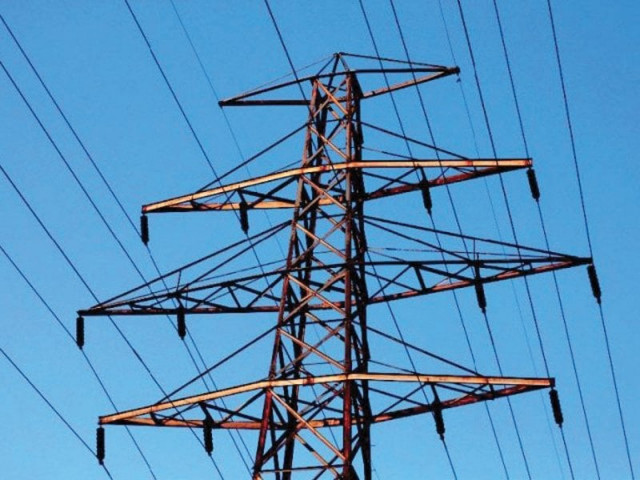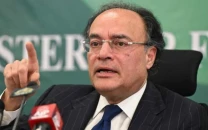Energy projects: PPP government stays short of targeted spending
Auditors point to lack of planning and mismanagement of funds.

Federal auditors consumed 110,000 pages to print 827 audit objections pertaining to the Ministry of Water and Power, indicating the extent of mismanagement and misappropriation of funds. PHOTO: FILE
The resolution of chronic energy crisis was never the priority of the previous government, which spent only two-thirds of allocated funds for energy projects in three years, according to accounts presented to parliament’s accountability arm on Wednesday.
Headed by Syed Khursheed Shah of Pakistan Peoples Party (PPP), the Public Accounts Committee (PAC) took a lenient view and settled appropriation accounts pertaining to three financial years of the PPP government.
The accounts had been brought before PAC to highlight lax planning on part of the Ministry of Water and Power, Ministry of Planning and Development and Ministry of Finance.
Federal auditors consumed 110,000 pages to print 827 audit objections pertaining to the Ministry of Water and Power, indicating the extent of mismanagement and misappropriation of funds.

According to the accounts, for financial years 2009-10 to 2011-12, the previous government had earmarked Rs118 billion for various schemes. However, actual spending stood at Rs75.5 billion while rest of the money was not released to the ministry.
In fiscal year 2009-10, an amount of Rs52.5 billion was allocated but actual spending remained at Rs29.5 billion. In 2010-11, Rs30 billion was allocated but Rs19.3 billion was spent and in 2011-12, Rs35.5 billion was earmarked while actual spending was Rs26.7 billion.
In the first year, 78 projects were affected due to shortage of funds, in the second year 27 projects and in the third year 33 projects, according to the auditors.
Because of financial constraints, the allocated budgets were not released to the Ministry of Water and Power, a representative of the Ministry of Finance told PAC.
PAC member Rana Afzaal of the PML-N suggested that officials responsible for the financial mismanagement should be taken to task – a proposal that the PAC chairman did not accept.
Auditor General of Pakistan Akhtar Buland Rana said the huge unspent amounts showed lack of planning on the part of ministries concerned and the purpose of bringing the accounts to PAC was to show how the affairs were run without proper planning.
Projects like electrification of villages, building capacity of Thar coal project, small and medium-sized dams and feasibility studies of water projects could not be completed on time due to delay in disbursement of funds, showed the documents.
The PPP government had been struggling to cope with prolonged power outages and tried to tackle shortages through expensive rental power projects. PAC members observed that due to lower allocations, the cost of these projects had significantly increased.
Those who were part of the ruling party were also sitting in the room and ready to respond.
“The Public Sector Development Programme (PSDP) (was) based on assumption of revenues and the other reason to allocate funds more than the resources is that respective governments like to show big allocations for development projects,” said PAC member Syed Naveed Qamar.
Qamar was one of three water and power ministers during the five-year tenure of the PPP government. He had stepped into Raja Pervaiz Ashraf’s shoes. He argued that floods also forced the government to divert funds from development projects.
The practice of setting big development budgets was not unique to the PPP, the current PML-N government also allocated Rs540 billion for federal development projects. Now, it has decided to cut it to Rs425 billion and indications are that actual spending will be far below the revised figure, according to officials of the Ministry of Planning.
Published in The Express Tribune, March 6th, 2014.
Like Business on Facebook, follow @TribuneBiz on Twitter to stay informed and join in the conversation.



















COMMENTS
Comments are moderated and generally will be posted if they are on-topic and not abusive.
For more information, please see our Comments FAQ